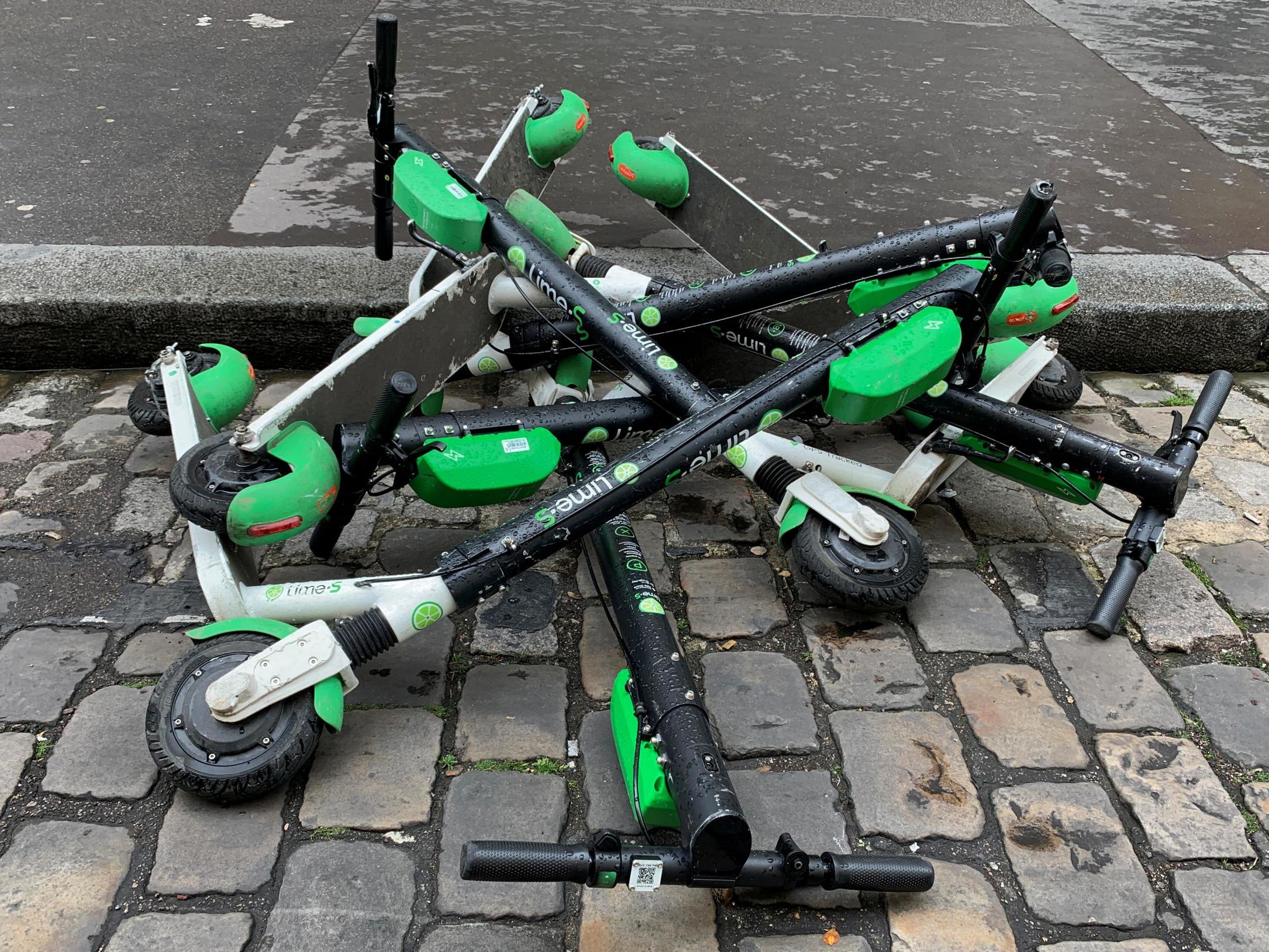Do not let this plague of electric scooters come to Britain
Planes, Trains and Autobahns: Britain's strict road regulations are saving it from the fate of the rest of the continent
In cities all over Europe, in every cafe, people are talking about the same thing. No, not Brexit: it’s those damn electric scooters.
The plague started last year and has spread like wildfire: Brussels to Lisbon, Paris to Wroclaw. Silicon Valley start-ups showed up one day with vans full of them – an oversized, motorised version of the children’s toy everyone knows. They dumped them on pavements; you can find and rent them with a smartphone app and ride them around town.
If this sounds pretty cool, it actually isn’t. On the surface they look like a futuristic, green transport solution: but the problems have quickly become obvious everywhere they spring up.
They need little advertising because people start literally tripping over them as soon as they appear. The scooters, which are surprisingly large and heavy, litter public places by design, blocking pavements and making life particularly difficult for people with reduced mobility. In most larger cities there are also something like six competing systems – blocking about six times as much pavement as necessary. Their loud alarms, triggered by drunk people trying to ride them without paying, are a familiar drone in the early hours of the morning. And a string of deaths of people riding them – and collisions with people who were just walking along minding their own business – have spurred city authorities into action. It’s the free market at its best.
Britain, almost alone, has managed to stay mostly scooter free: saved by its strict road regulations. One law dating from 1853 bans the riding of a “carriage of any description” on the pavement – while licensing rules mean that they would have to be insured and number plated to be ridden on the roads. Thus the dockless schemes are de facto banned. The UK has got this absolutely spot on: they are neither appropriate to ride on the pavement, nor any different from any other motorised vehicle.
Gallingly, one of the bigger operators, San Francisco-headquartered Lime, has launched a PR campaign trying to shift the blame for the negative externalities the scooters cause to “irresponsible users”. The poster campaign, plastered across the Paris Metro acknowledges that people overwhelmingly hate the “trottinettes” (as they are known in French), and admonishes its own users to respect pedestrians and park properly. But there is no way to use their product responsibly: you either leave the scooter on the pavement, or the road. Neither is a good place. You either ride them on the pavement or the road: again, neither, as British law acknowledges, is ideal.
Could they be tamed and become a useful part of cities’ transport mix? A docking scheme – similar to the one used by Boris Bikes – would solve the biggest issue: the blocking of pavements. But of course, the tech firms pushing them haven’t bothered with that – they would have to apply for planning permission, and buying land in prime city centres would probably render the whole thing unprofitable. Better just to fly-tip their product wherever they fancy: I have seen it in Brussels, at 3am: men silently unloading scooters out of an unmarked van and leaving them on the pavement, like a reverse burglary.
There’s also no reason in principle why individuals couldn’t simply buy and own an electric scooter like they own a bike or car. Most of the problems come from the dockless rental system which encourages user to leave them strewn around the place.

Different cities are taking different approaches to tackling the scourge. One commune in Brussels, St Josse, says they must be left in a few designated locations around the borough where there is actually space for them. Lisbon is sending enforcement officers around to clear them off pavements and introducing a “removal fee” if the companies want them back. Paris wants stricter speed limits. Some citizens take matters into their own hands and chuck them into rivers and canals.
British politicians love to pretend they’re “into tech”, so it’s only a matter of time before one of them has the bright idea of changing the law to allow these things to clog up pavements from Portsmouth and Perth (perhaps egged on by a bit of lobbying). This is a plea from someone who has seen the future: please, for the love of god, do not let these things come to the UK.
Join our commenting forum
Join thought-provoking conversations, follow other Independent readers and see their replies
Comments
Bookmark popover
Removed from bookmarks